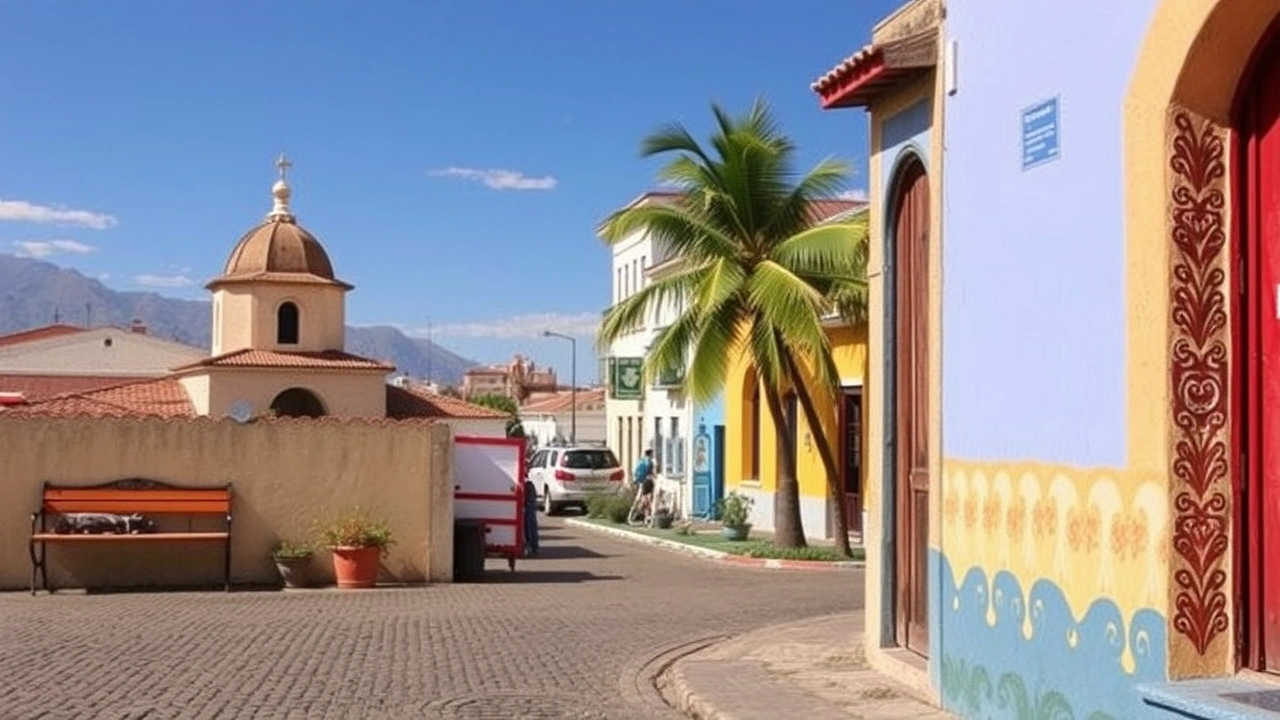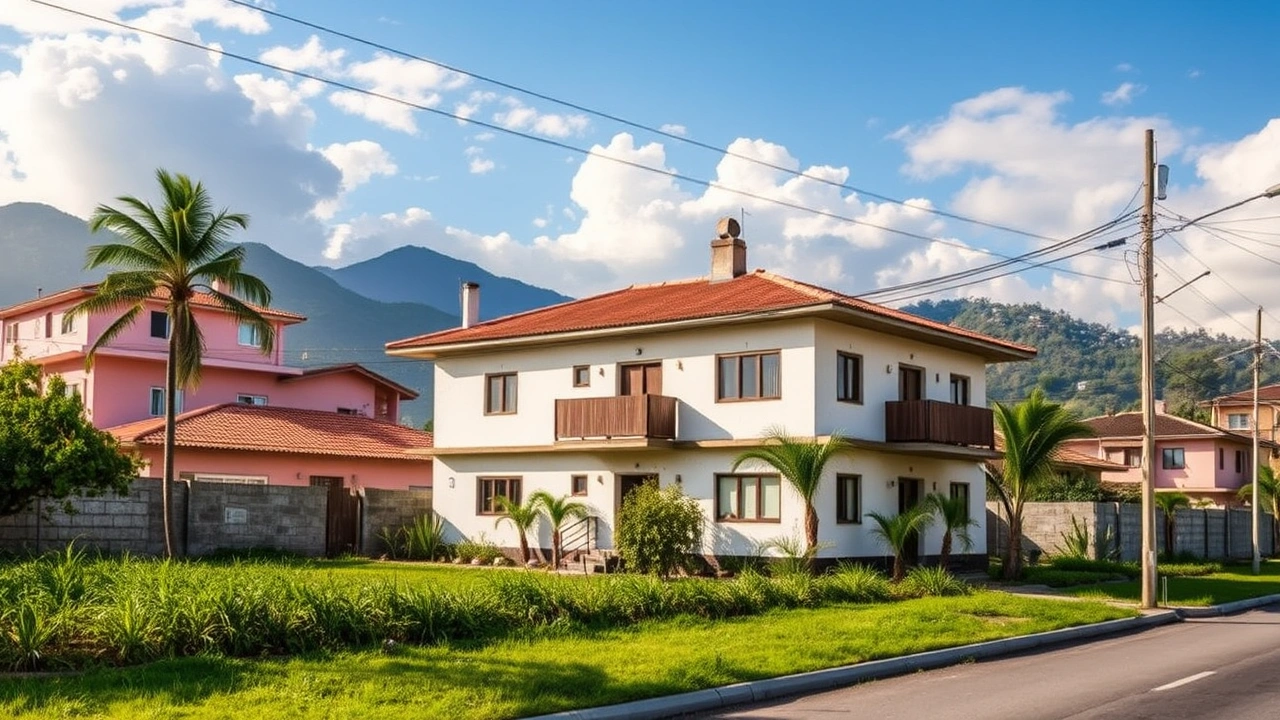
 Published on and written by Cyril Jarnias
Published on and written by Cyril Jarnias
Shopping Safely in the Dominican Republic
Shopping safely in the Dominican Republic requires a solid understanding of the essential certifications to look for to ensure product quality and compliance. In an increasingly globalized market, it’s crucial for consumers and businesses to be informed about the standards and labels governing trade to avoid unpleasant surprises.
Whether for food, electrical, or construction products, these certifications play a vital role in ensuring items meet current health, safety, and environmental requirements.
This article explores the main labels and certifications to prioritize for navigating purchasing processes smoothly in this dynamic Caribbean country.
Essential Legal Documents for Secure Purchases in the Dominican Republic
Essential legal documents when purchasing real estate in the Dominican Republic:
- Certificado de Título
This document is the official proof of the seller’s legal ownership. It’s imperative to verify that the Certificado de Título is up-to-date, in the seller’s name, and free from any mortgages, disputes, or restrictions. - Deslinde (cadastral demarcation)
The Deslinde is the cadastral demarcation process that precisely identifies the property in the land registry. Without a valid Deslinde, the property transfer cannot be legally recorded. It ensures the property boundaries and area are recognized by authorities. - Sales Agreement or Preliminary Contract
The sales agreement (purchase-sale promise) is an initial agreement between buyer and seller, signed before a notary. It specifies party identification, legal property description, price, payment terms, and conditions precedent. - Final Purchase Contract (Contrato de Compraventa)
This contract, also executed before a notary, formalizes the transaction and enables property transfer registration with the title registry. - Official Topographic Survey
It confirms the exact location and dimensions of the property, essential for the Deslinde. - Proof of IPI Tax Payment or Exemption Evidence
Verification that all tax obligations related to the property are current. - Party Identification Documents
Passport or ID card of the seller (and spouse if applicable). - Tax Identification Number (RNC)
Mandatory for the buyer, Dominican or foreign, to register the property in their name.
Additional Documents if the Seller is a Company:
- Company bylaws and proof of registration with the Commercial Registry
- Certificate from the General Directorate of Internal Taxes (DGII) confirming tax compliance
- Condominium declaration and regulations if applicable
- Administration certificate proving payment of current fees
- Utility contracts and furniture inventory if included in the sale
Role of the Real Estate Attorney:
- Legal Compliance Verification
The attorney ensures all documents are authentic, the chain of title (history of successive owners) is clear, and there are no existing mortgages, ongoing disputes, or usage restrictions. - Protection of Buyer’s Interests
They review the sales agreement, final contract, cadastral and tax documents, and advise on potential risks. - Transaction Supervision
The attorney manages document filing with the land registry, sale-related taxation, and ensures proper execution of each step.
Tips to Avoid Fraud and Legal Complications:
- Require presentation of the original Certificado de Título and verify it’s free of encumbrances.
- Request proof of Deslinde, without which the property isn’t properly registered.
- Have an attorney check the chain of title to detect any anomalies or breaks.
- Never transfer significant funds before signing the sales agreement and complete document verification.
- Ensure all taxes and fees (IPI, condominium, utilities) are paid before sale completion.
| Document | Role/Function | Essential Notes |
|---|---|---|
| Certificado de Título | Official proof of ownership | Must be free of encumbrances |
| Deslinde | Certified cadastral demarcation | Mandatory for registration |
| Sales Agreement | Initial agreement, transaction terms | Signed before notary |
| Final Purchase Contract | Legal property transfer | Enables registration |
| Topographic Survey | Confirms boundaries and area | Essential for Deslinde |
| IPI Payment Proof | Verifies tax compliance | Required before sale |
| Identification Documents | Party identification | Passport/ID card |
| RNC | Tax ID for buyer | Required for registration |
Key Takeaway
Hiring a specialized attorney is essential to secure the purchase and guarantee compliance of all documents.
Verifying the chain of title is the best protection against fraud and future legal complications.
Good to Know:
For a secure real estate purchase in the Dominican Republic, several legal documents are essential, including the Certificado de Título, proving the seller’s legal ownership, and the Deslinde, ensuring the property is properly cadastred. It’s also crucial to have a sales contract or preliminary agreement detailing the acquisition terms. Assistance from a real estate attorney is highly recommended to verify all documents comply with local laws and to audit the chain of title, an essential precaution to avoid future fraud and disputes. Ensure the attorney confirms the authenticity and validity of property titles by tracing the complete transaction history related to the property, guaranteeing a surprise-free and legally sound transaction.
Zoning Certificate: Why Is It Essential?
The zoning certificate is an essential document for secure real estate purchases in the Dominican Republic, as it guarantees the buyer clear and official knowledge of the rules applying to land use and construction possibilities on the intended parcel.
Reasons Why the Zoning Certificate is Indispensable:
- Identification of Land Use Regulations:
The zoning certificate reveals whether the land is buildable, located in a flood zone, protected area, agricultural zone, or subject to specific restrictions. It also indicates density rules, minimum areas, land occupancy coefficients, and applicable taxes. - Information on Construction Possibilities:
This document informs about the possibility of obtaining a building permit, authorized construction types, maximum heights, mandatory setbacks, and any preservation or landscape integration obligations. - Detection of Easements and Legal Limitations:
It mentions public utility easements (access, networks, environmental protection, etc.) and any legal limitations that might restrict property use or value.
Impact on Property Value and Project Feasibility:
| Zoning Certificate Information | Consequence for Buyer |
|---|---|
| Buildable land | Feasible project, assured appreciation |
| Non-buildable land | Difficult resale, blocked project |
| Easement or restriction | Necessary adaptation, additional costs |
| Specific zoning taxes | Impact on overall budget |
| Flood or protected zone | Risk of construction prohibition |
Concrete Examples of Complications Without Zoning Certificate:
- Purchase of land verbally declared buildable but located in a protected area: inability to obtain building permit, disputes with authorities, value loss upon resale.
- Acquisition without easement verification, later discovery of right-of-way or environmental obligation: inability to fence or construct certain structures, conflicts with neighbors.
- Construction project started on non-buildable land: permit denial, demolition of completed work, major financial loss.
Tips for Potential Buyers:
- Always require presentation of the zoning certificate before any commitment or deposit payment.
- Verify the certificate is current and obtained from competent authorities (municipality, cadastre, relevant ministry).
- Compare certificate information with local zoning plan and land registry to ensure data consistency.
- Seek professional advice (notary, local real estate attorney) for interpreting potential restrictions.
Absence of a zoning certificate exposes you to significant legal, financial, and technical risks. This document is the primary guarantee of a secure purchase and feasible real estate project in the Dominican Republic.
Good to Know:
In the Dominican Republic, the zoning certificate is crucial for secure purchases as it reveals land use regulations, construction possibilities, and easements or legal limitations that could affect a property. This document plays a major role in assessing property value and project feasibility, avoiding unpleasant surprises that could compromise planned construction or renovation plans. For example, buyers have discovered too late that their land was subject to an easement preventing any construction, causing considerable financial losses. To avoid such setbacks, potential buyers are advised to always verify this document before concluding any real estate transaction, ensuring the land meets their needs and there are no unforeseen obstacles to their project.
Title Verification: How to Ensure Its Validity
Essential Steps to Guarantee Title Validity in the Dominican Republic:
- Legal Status Verification
- Consult the Registro de Títulos (Title Registry) corresponding to the property’s jurisdiction.
- Verify the seller is indeed the legal owner and has capacity to sell the property (including marital status and rights).
- Obtaining and Checking Title Certificate
- Ensure the property has a valid title certificate, official document issued after the “saneamiento” procedure, guaranteeing ownership and enforceable against all parties.
- The certificate must clearly state current and historical owners.
- Search for Encumbrances and Disputes
- Request an official certification from the Registro de Títulos indicating:
- Privileges
- Mortgages
- Court judgments
- Easements or legal restrictions affecting the property.
- Verify there are no ongoing disputes, mortgages, or seizures.
- Request an official certification from the Registro de Títulos indicating:
- Geographic and Technical Verification
- Engage a licensed surveyor to check correspondence between the property and cadastral documents/official plans.
- Tax Check
- Verify the property’s status regarding Impuesto sobre la Propiedad Inmobiliaria (IPI), the real estate property tax, and ensure no tax debts are outstanding.
Summary Table of Involved Entities and Documents
| Step | Entity or Professional | Document or Action to Obtain |
|---|---|---|
| Ownership Verification | Registro de Títulos | Title certificate, history |
| Encumbrance Check | Registro de Títulos | Official certification |
| Geographic Verification | Licensed Surveyor | Survey report, plans |
| Seller Capacity Verification | Notary/Attorney | Identity and status check |
| Tax Verification | Dominican Tax Administration | IPI certificate |
List of Verifications to Perform
- Consult the Dominican public real estate registry (Registro de Títulos).
- Obtain the official title certificate.
- Verify absence of mortgages, privileges, judgments, or restrictions.
- Ensure the property isn’t involved in judicial disputes.
- Check property conformity with cadastral plans.
- Verify tax situation (IPI).
- Confirm seller’s legal capacity.
Importance of Specialized Attorney Assistance
For any real estate transaction in the Dominican Republic, it’s essential to seek assistance from a local attorney specialized in real estate law. This professional masters the Torrens system, Registro de Títulos specifics, and Dominican legal nuances. They’ll ensure title legitimacy, absence of encumbrances, and compliance with all legal and administrative steps, thus protecting the buyer against future risks.
Never commit to a real estate purchase without performing these verifications and obtaining written advice from a competent Dominican attorney.
Good to Know:
To guarantee title validity in the Dominican Republic, start by consulting the local public real estate registry managed by the National Real Estate Jurisdiction. It’s essential to obtain the title certificate issued by the Mortgage Conservator, attesting the property is duly registered and free of encumbrances. To verify absence of mortgages or disputes, you must examine potential encumbrances and engage a local attorney specialized in real estate law, who can perform thorough research and certify document legitimacy. The attorney can also confirm there are no ongoing disputes involving the property, ensuring a secure transaction.
Mandatory Inspections: Ensuring Your Acquisition’s Compliance
To ensure compliance of real estate acquisitions in the Dominican Republic, several certifications and inspections are required by local legislation.
| Inspection/Certification | Description and Usefulness | Authorized Professional |
| Land Title Certificate | Official document attesting ownership and absence of disputes or mortgages on the property. Essential for securing the transaction. | Attorney, notary, land registry |
| Electrical Infrastructure Inspection | Verification of electrical installation compliance and safety according to local standards. | Licensed engineer or electrician |
| Water and Sanitation Systems Inspection | Check of condition and compliance of water supply and wastewater disposal installations. | Specialized technician or engineer |
| Environmental Verifications | Assessment of pollution absence, exposure to natural risks (flooding, landslides), or non-compliance with green building standards. | Environmental consulting firm |
Importance of These Inspections:
- Protect buyer against hidden defects and regulatory non-compliance.
- Help avoid unexpected renovation costs (bringing up to code, major repairs).
- Guard against disputes related to property ownership or use.
- Provide assurance about property health, safety, and investment longevity.
Situations Requiring Expert or Attorney Assistance:
- When verifying land title certificate validity and compliance.
- When acquiring older properties or those with undeclared modifications.
- If the property is located in an environmental risk area or near protected zones.
- For drafting and securing sales contracts to include all compliance clauses.
- During technical inspections to ensure professionals are licensed and reports are legally admissible.
Key Takeaway:
Assistance from a local real estate attorney is highly recommended to secure each acquisition step, from land title verification to technical inspection validation.
Good to Know:
In the Dominican Republic, when purchasing real estate, it’s imperative to verify the land title certificate to ensure the seller is the legitimate owner. Technical inspections are also necessary, particularly for electricity, water, and sanitation systems, ensuring infrastructure complies with local standards and functions properly. Environmental verifications may be required to identify any contamination or usage restrictions related to the area. The importance of these inspections lies in preventing unexpected renovations and potential legal disputes, thus avoiding additional expenses. Engaging an expert or specialized attorney can be crucial for navigating these formalities, especially if complexities arise during the process, providing peace of mind for the buyer.
Disclaimer: The information provided on this website is for informational purposes only and does not constitute financial, legal, or professional advice. We encourage you to consult qualified experts before making any investment, real estate, or expatriation decisions. Although we strive to maintain up-to-date and accurate information, we do not guarantee the completeness, accuracy, or timeliness of the proposed content. As investment and expatriation involve risks, we disclaim any liability for potential losses or damages arising from the use of this site. Your use of this site confirms your acceptance of these terms and your understanding of the associated risks.























































